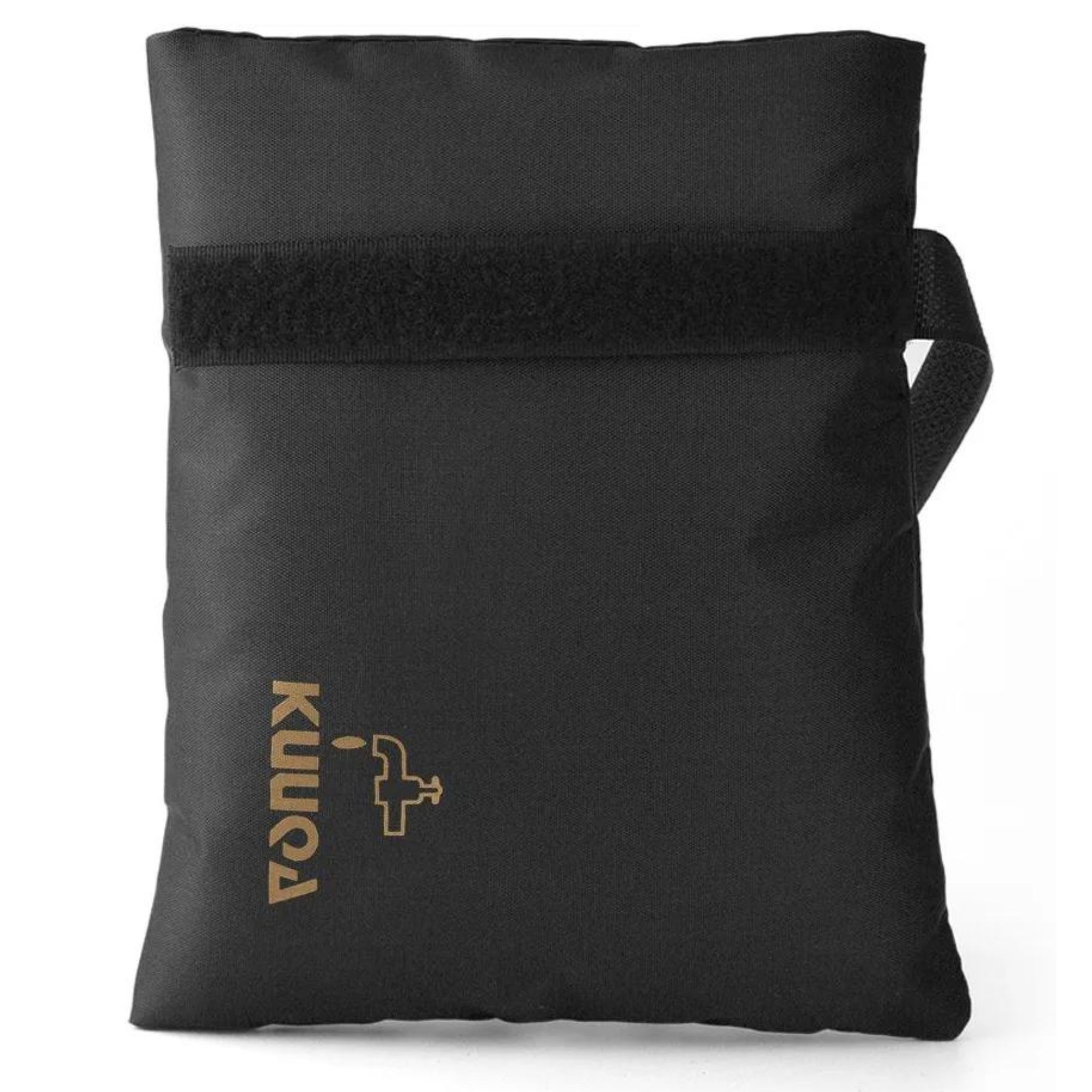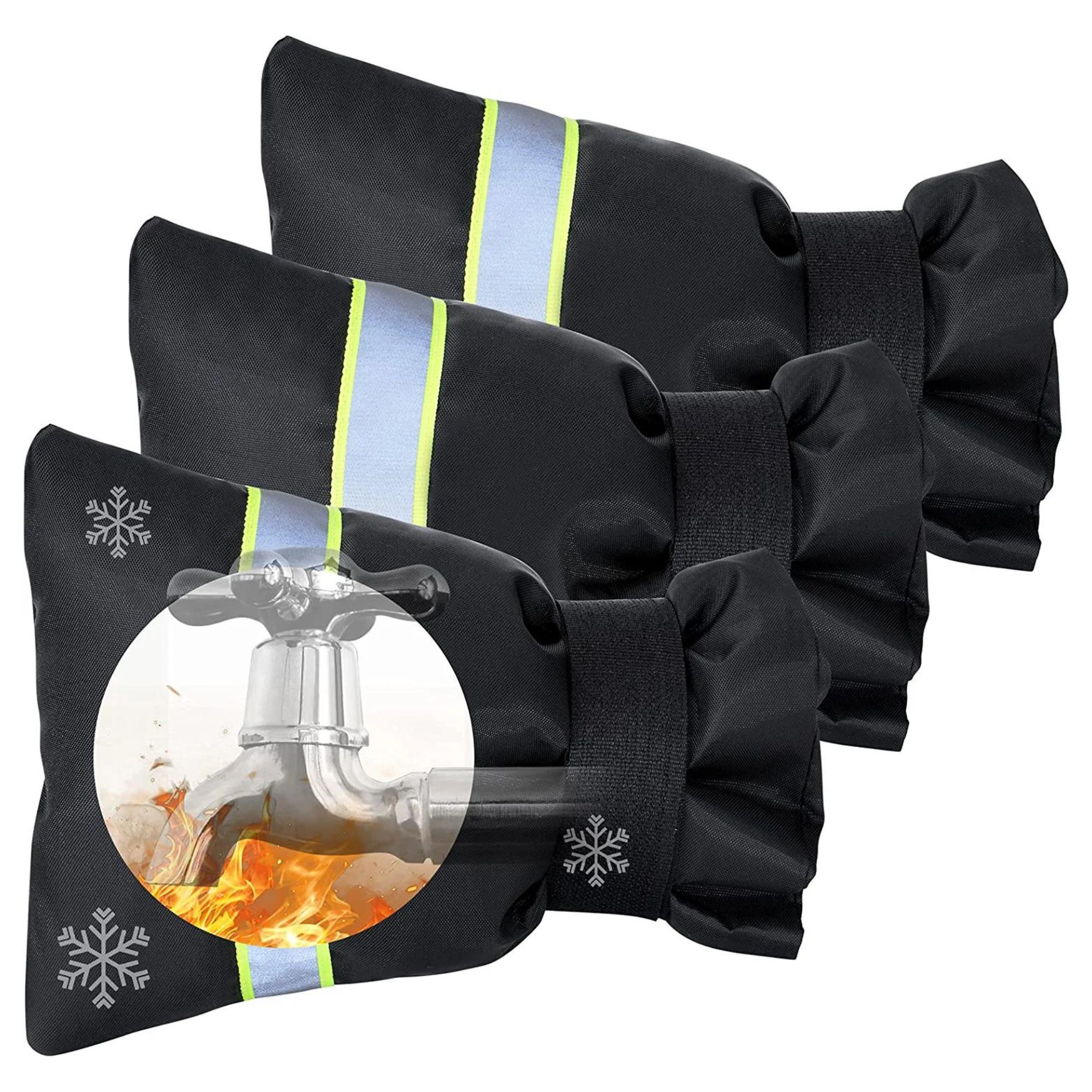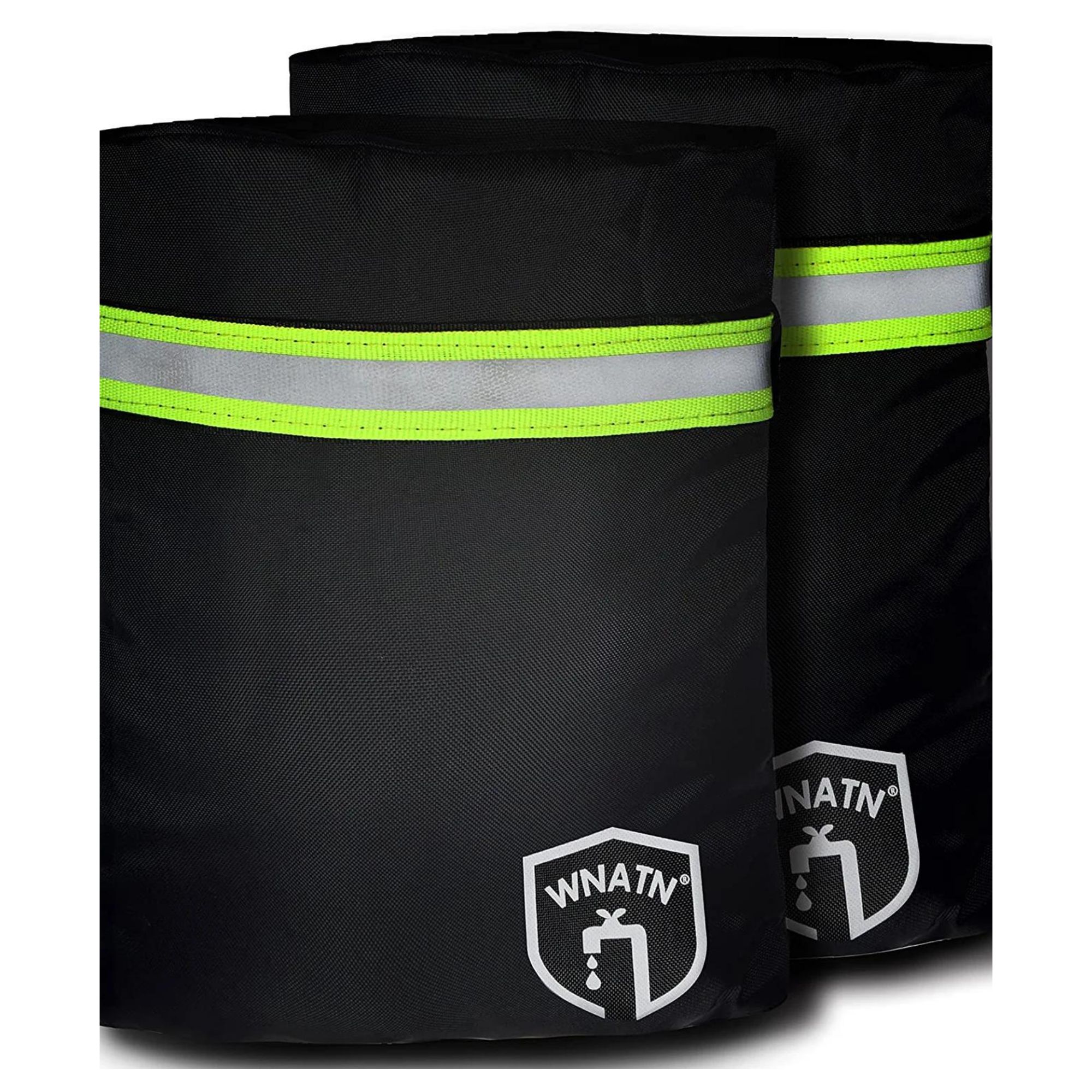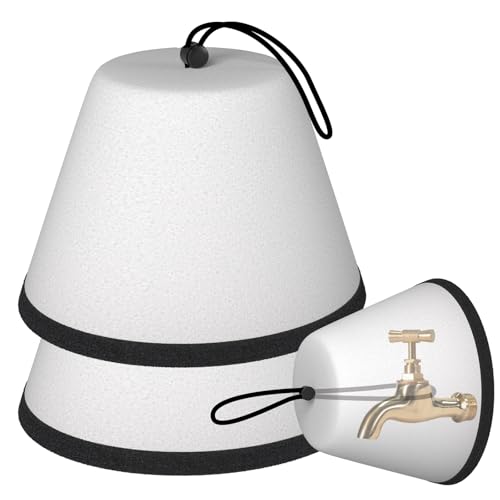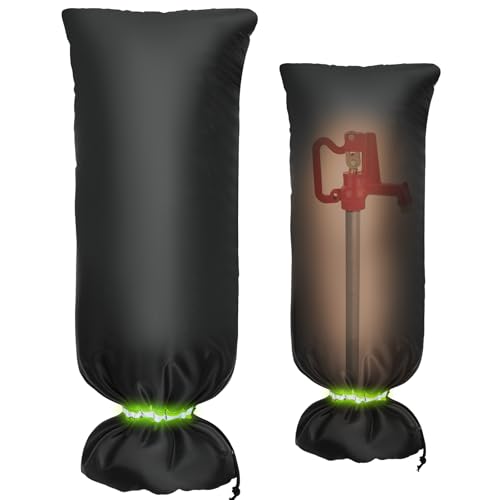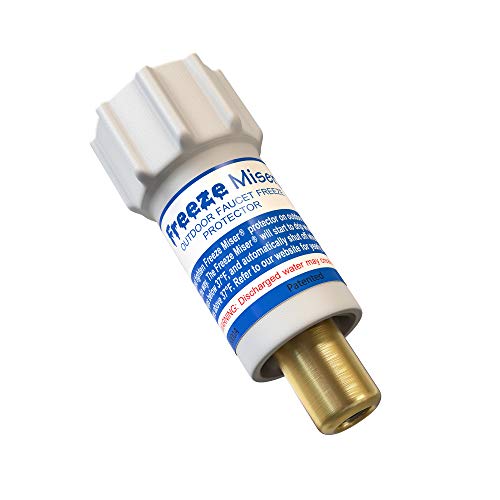Should I cover my outside faucet in winter? Experts explain how this simple task can save you hundreds of dollars in damages
Frozen faucets cause more issues than not being able to water your plants

Chiana Dickson
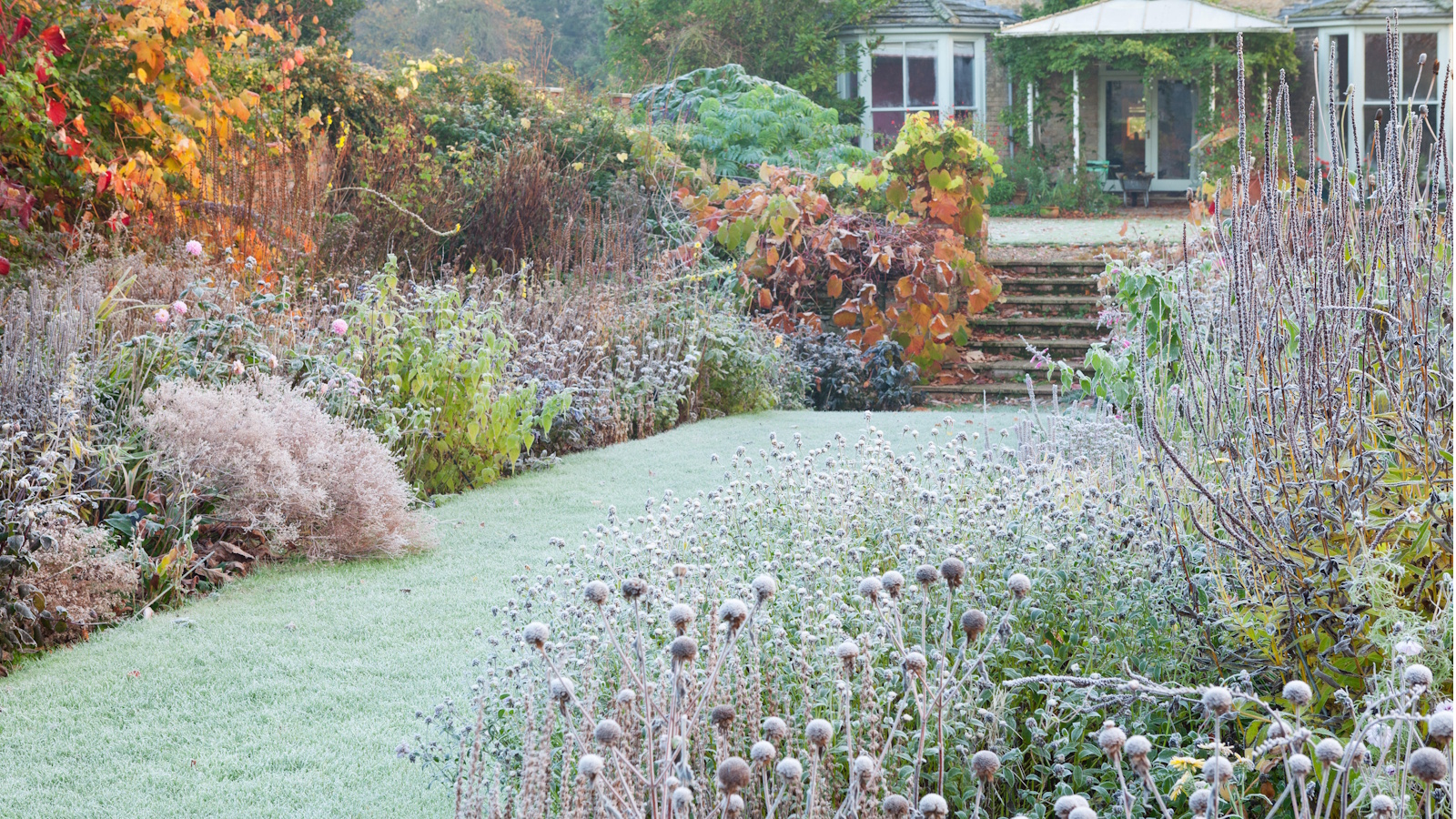
Design expertise in your inbox – from inspiring decorating ideas and beautiful celebrity homes to practical gardening advice and shopping round-ups.
You are now subscribed
Your newsletter sign-up was successful
Want to add more newsletters?

Twice a week
Homes&Gardens
The ultimate interior design resource from the world's leading experts - discover inspiring decorating ideas, color scheming know-how, garden inspiration and shopping expertise.

Once a week
In The Loop from Next In Design
Members of the Next in Design Circle will receive In the Loop, our weekly email filled with trade news, names to know and spotlight moments. Together we’re building a brighter design future.

Twice a week
Cucina
Whether you’re passionate about hosting exquisite dinners, experimenting with culinary trends, or perfecting your kitchen's design with timeless elegance and innovative functionality, this newsletter is here to inspire
Even if you don't use your outside faucet in the winter, a frozen pipeline is often much more than a simple nuisance – at worst, it can burst, causing extensive damage. But, will covering a faucet in winter help to avert disaster?
Protecting an outside faucet from freezing in winter is one of the best ways to help mitigate damage caused by burst pipes. If you can't let an outdoor faucet drip to prevent freezing or turn the water supply off at the mains, then covering an outside faucet is your next course of action to help protect your waterlines in winter.
As big freezes will hit this winter, especially in northern territories, experts answer, 'should I cover my outside faucet?,' explain when to do it, and what else you should be doing.
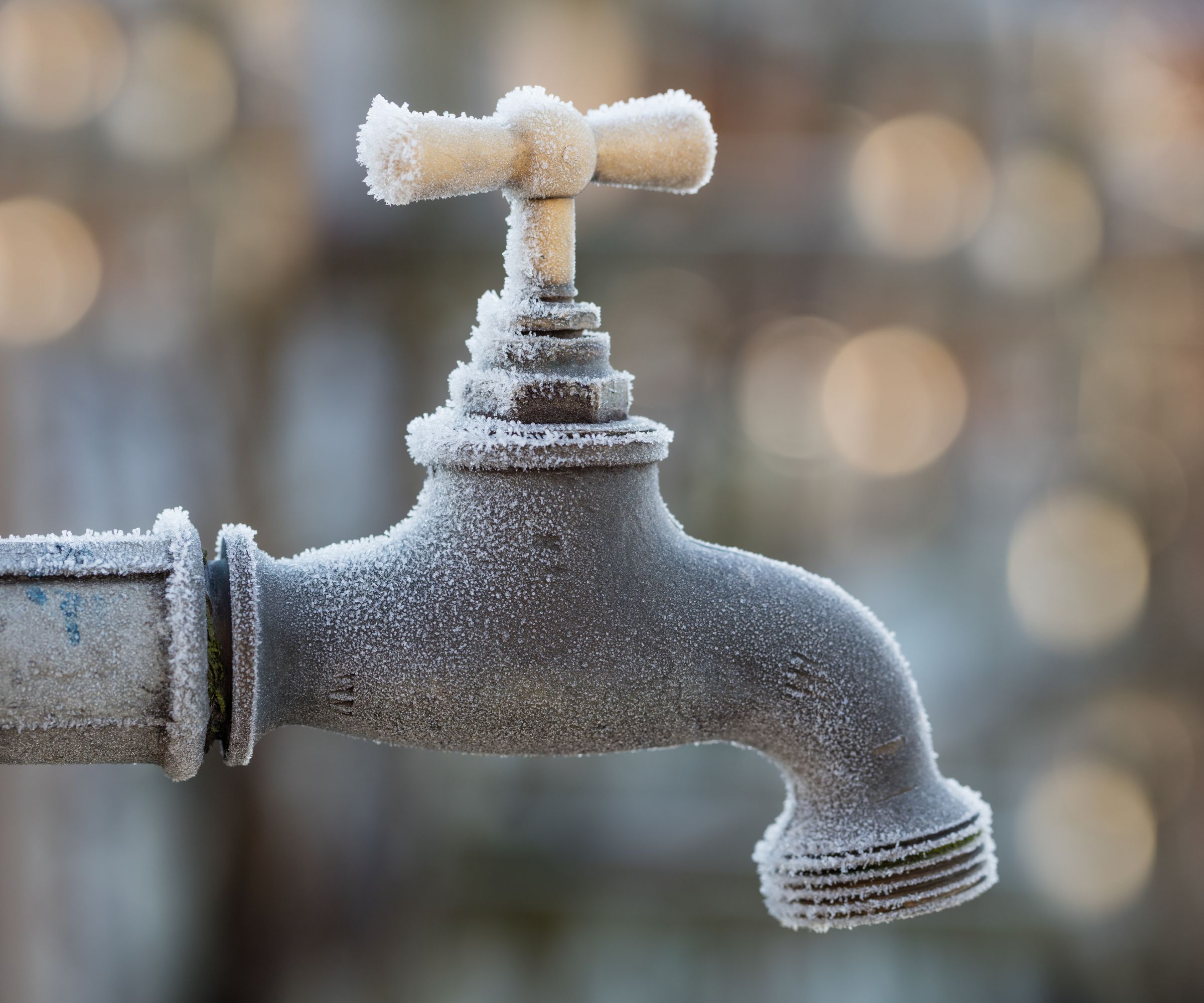
Should I cover my outside faucet in winter?
With freezing temperatures on the horizon, experts confirm that covering your outside faucet and exposed pipes will help to prevent some damage to pipework and infrastructure. If you can turn your faucet off, however, a cover might not be necessary.
Why covering an outside faucet can be beneficial
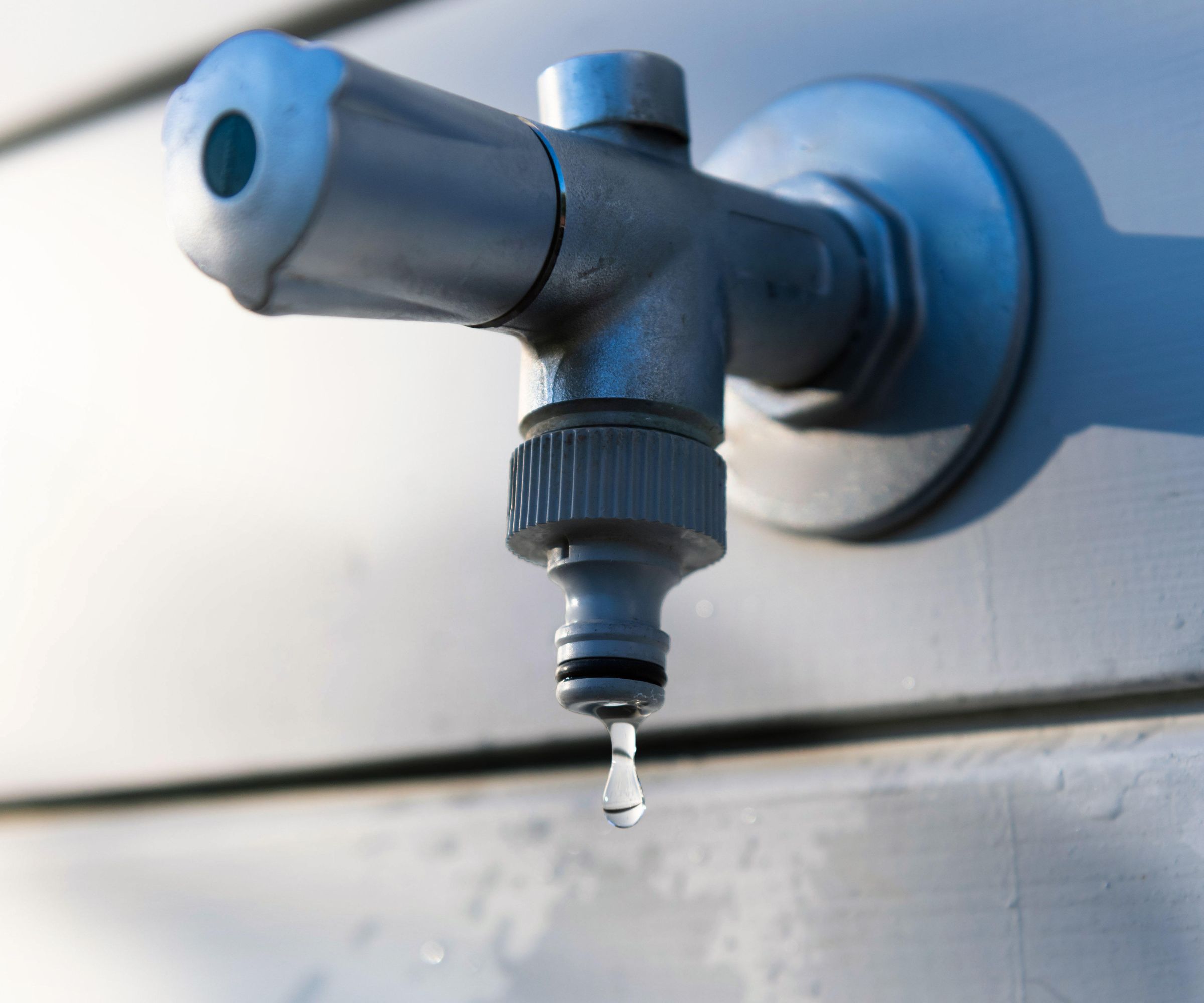
It is always a good idea to have another layer of protection when it comes to avoiding freezing pipes and faucets, but Jake Romano, general manager at John the Plumber, based in Ottawa, warns it shouldn't be your only long-term solution.
'Depending on how cold your climate can become, an insulated cover (like this from Amazon) is only going to buy you time,' he says.
If you aren't used to sudden frosts and cold snaps, then it may seem impractical or just another chore to cover faucets and pipework whenever the weather cools down; however, a cover is certainly a better solution than leaving faucets and pipes exposed.
Design expertise in your inbox – from inspiring decorating ideas and beautiful celebrity homes to practical gardening advice and shopping round-ups.

Jake Romano is general manager at plumbing solutions business, John the Plumber, servicing the entire Ottawa area.
How to cover an outside faucet properly
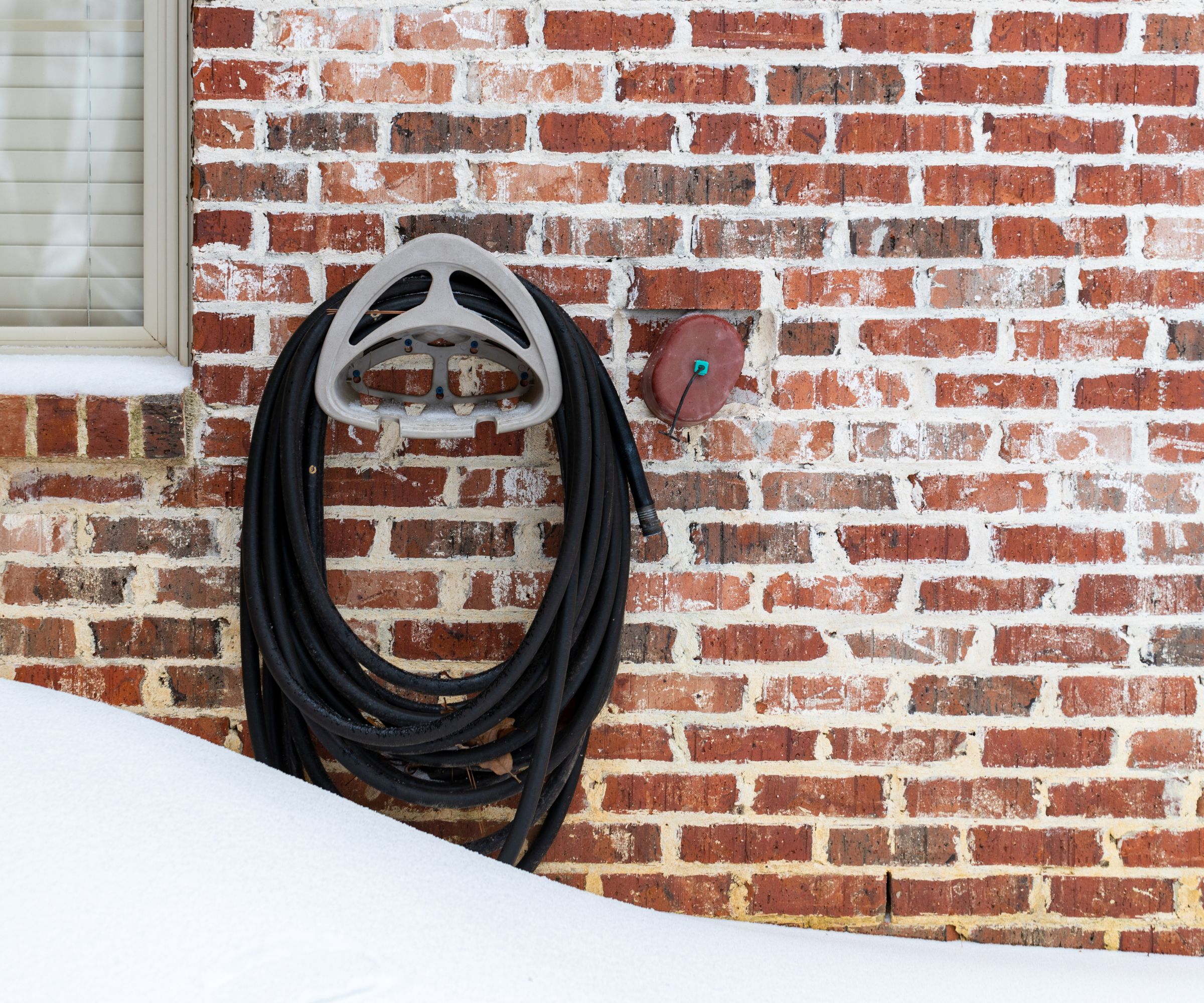
Covering a faucet is often one of the last steps in winterizing a house and simply requires wrapping the pipe and faucet tap in an insulated bag or sock, such as this faucet cover from Amazon, or containing it within an insulated box, such as this Rocky Mountain Goods faucet cover available on Amazon, to help protect the metal and plastic from the freezing cold.
When sealed correctly, a faucet cover traps heat around the tap, preventing the formation of frost on the metal and plastic and from the resultant cold travelling down the pipeline.
'While a single insulated cover is often enough in mild climates, those living in very cold temperatures for an extended amount of time may want to pack the inside of the box or bag with extra insulation, such as wool, bubble wrap or straw for added protection,' Rachel Bull, Head of Gardens at Homes & Gardens.
It is possible to make your own insulating cover if needed, but it is not the best long-term fix. Simply wrapping an old shirt, blanket, or cloth around the faucet and securing it with a plastic bag and strong tape can help take some of the pressure off of the faucet and prevent a build-up of biting frost. Store bought options are a more efficient option, however.

Rachel is a gardening writer, flower grower and floral designer. Her journalism career began 15 years ago on Country Living magazine, sparking a love of container gardening and wild planting. After more than a decade writing for and editing a range of consumer, business and special interest titles, Rachel became editor of floral art magazine The Flower Arranger. She then trained and worked as a floral designer and stylist in London for six years, before joining the Homes & Gardens team.
Is covering an outside faucet the only option?
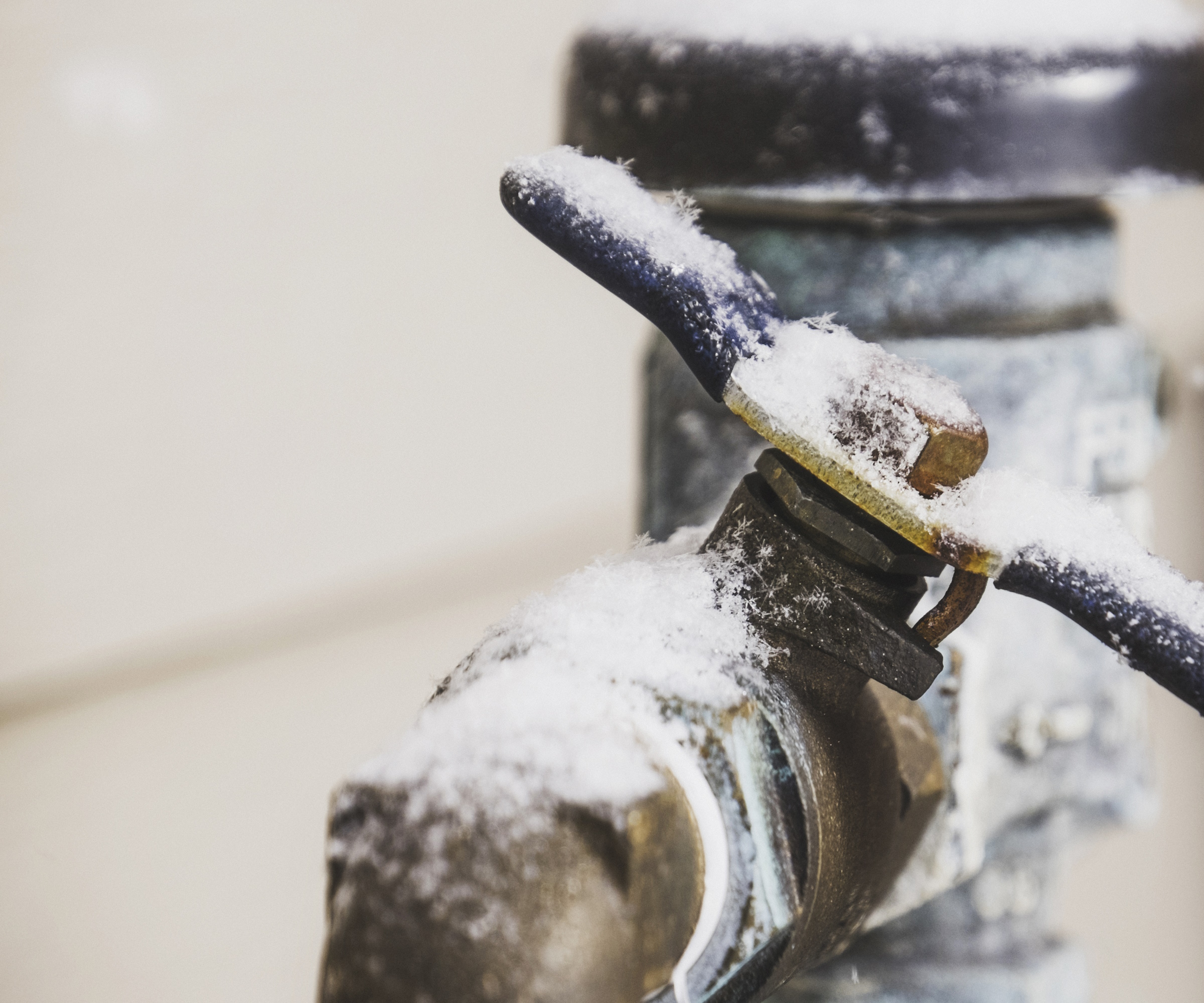
According to those in the know, understanding how to properly winterize an outside faucet is the key.
'If you properly close your outdoor faucet for the winter, then you shouldn't have any problems,' says Jake Romano. 'Properly closing your outdoor faucet means shutting the water supply shutoff valve inside your home that supplies water to the outdoor faucet, then opening the outdoor faucet to drain the water from the line.
'The reason you want to do this is that freezing temperatures can travel through the faucet and into the water pipe. If the water inside the pipe freezes, it will expand. If it expands enough, the pipe will split or burst, and you'll have to deal with a flooded basement.
Jake warns that with or without a protective winter cover over your outdoor faucet, not winterizing the system properly is a gamble.
You should consider winterizing and covering a faucet once temperatures begin to drop below 28ºF for three hours or more at a time.
Can I let my outdoor faucet drip to prevent freezing?
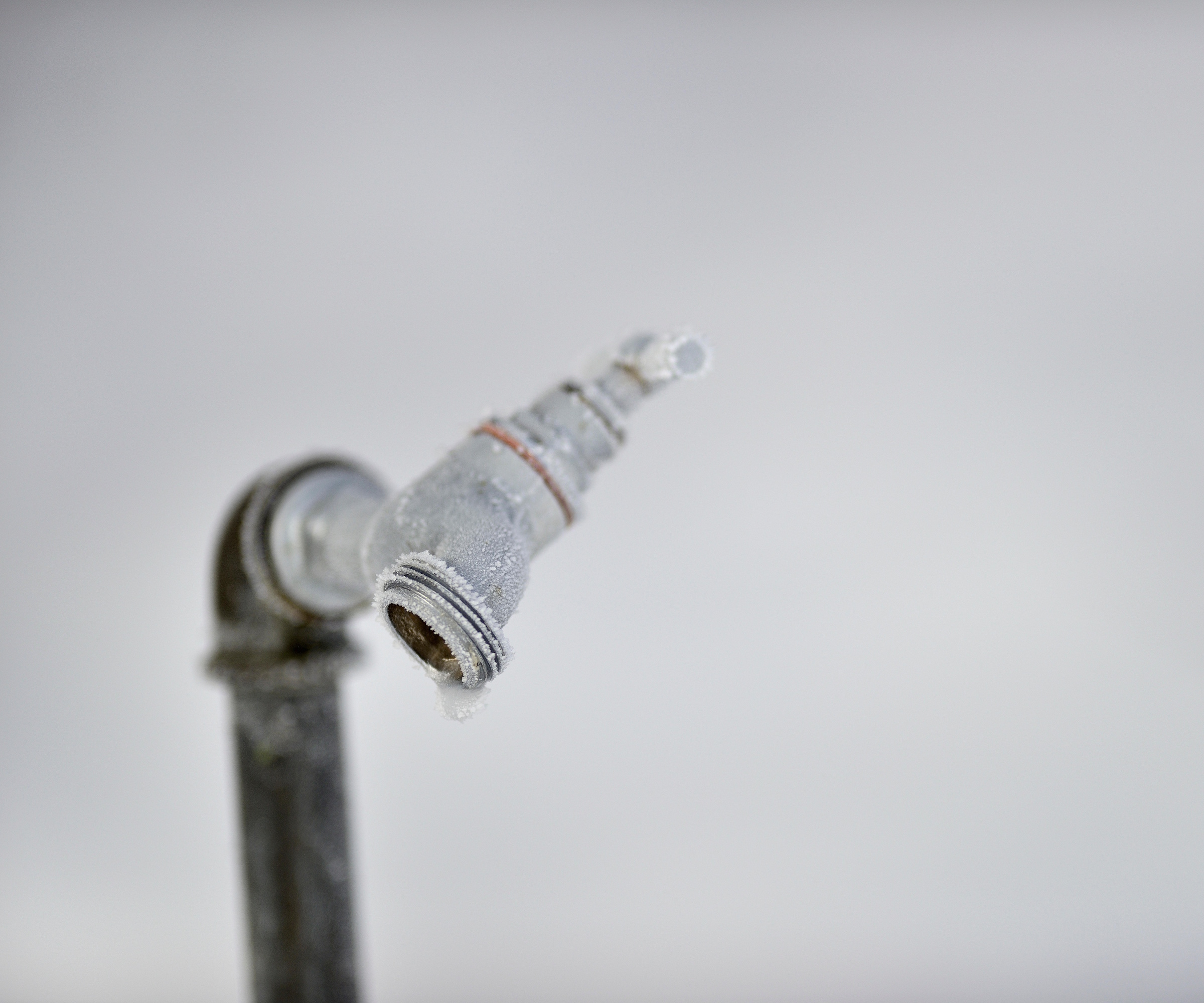
This is another method to consider. Leaving an outdoor faucet dripping in winter can prevent freezing throughout winter as running water is a lot less likely to freeze than stagnant.
'Moving water has a slightly lower freezing point than still water, making it less susceptible to freezing at the same temperature,' explains Jay Sanders owner at Castle Dream Construction.
A dripping faucet can also prevent water pressure build-up. 'The constant flow of water relieves pressure inside the faucet and pipe, reducing the risk of the ice expanding and pipes bursting,' says Jay.
A major plus point for this method is that it's quick and convenient. 'Allowing a faucet to drip requires minimal effort and can be easily stopped when a period of freezing weather has passed,' he adds.
Of course, there are some downsides to this method. According to Jay, a dripping faucet can waste significant amounts of water, especially if left running for extended periods.
'Consider the environmental impact and potential cost increase on your water bill,' he advises.
It can also be inconsistent in its effectiveness. 'Dripping may be needed to prevent freezing in extremely cold temperatures or if the pipe is poorly insulated,' says Jay.
However you can run the risk of potential freezing at the drip point. 'The water droplets can actually freeze on the faucet spout or nearby surfaces, creating an icy slip-hazard,' he warns.

Jay Sanders is an MHIC Licensed contractor and owner of Castle Dream Construction & Basement Waterproofing in Baltimore Maryland. Jay has more than 10 years of home improvement experience.
FAQs
How to know if your outside faucet has frozen
A burst or frozen pipe has the same signs outside your home as inside, with no running water the first sign of a problem with your pipework.
'If you suspect your pipes are frozen the tell-tale signs to look out for include little to no water coming from taps, exposed pipes appearing frosty or wet, and damp patches on walls,' says Jess Steele of BestHeating. 'If you spot these signs, turn the water off at the valve and run the remaining water to relieve the pressure.'
If you suspect a pipe has burst due to over-expansion from freezing, it is a good idea to call in a professional to prevent further damage, Jess advises. 'You should temporarily mend the pipe with heavy-duty tape (from Walmart) when possible, but always refer to a qualified plumber to fix the issue,' she says.

Jess has a passion for interior design and wants to inspire people to look at radiators as home decor. She enjoys keeping on top of the latest design and heating trends to ensure the Advice Centre has all the information and inspiration homeowners need to make the best choice for them.
Now you have the answer to 'should I cover my outside faucet?' you might want to check our guide to winterizing a house and overwintering a garden to avoid any other potentially costly issues that can arise as a result of a cold snap.
Shop faucet covers and frost protection

Rachel is a gardening editor, floral designer, flower grower and gardener. Her journalism career began on Country Living magazine, sparking a love of container gardening and wild planting. After several years as editor of floral art magazine The Flower Arranger, Rachel became a floral designer and stylist, before joining Homes & Gardens in 2023. She writes and presents the brand's weekly gardening and floristry social series Petals & Roots. An expert in cut flowers, she is particularly interested in sustainable gardening methods and growing flowers and herbs for wellbeing. Last summer, she was invited to Singapore to learn about the nation state's ambitious plan to create a city in nature, discovering a world of tropical planting and visionary urban horticulture.
- Chiana DicksonKitchen Appliances Editor
